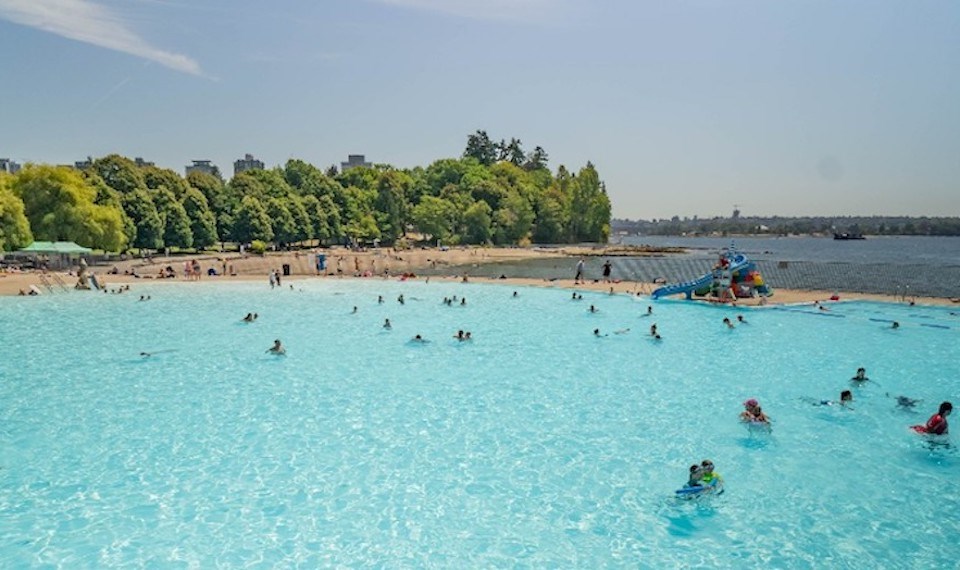The Metro Vancouver weather forecast includes some sizzling temperatures in what's shaping up to be the season's first heat wave.
Environment Canada meteorologist Ken Dosanjh said temperatures should start climbing up at the end of the week following a wetter-than-normal June.
"Metro Vancouver had 119 per cent of its regular precipitation, so slightly above normal," he told V.I.A. "But any rain is welcome due to the persistent drought in the province."
June's temperatures trended close to monthly averages and there wasn't any particularly remarkable cold or heat.
V.I.A.'s Downtown Centre Weatherhood station shows clearing skies commencing Tuesday, July 2 with a high of 22 C and a low of 15 C.
Any residual cloud coverage is expected to dissipate Wednesday, July 3, with a high of 20 C and an overnight low of 13 C. Thursday, July 4 should see clear conditions with a high of 24 C and a low of 14 C in the downtown area.
Friday's forecast includes more climbing temperatures, with a daytime high of 26 C or 27 C. Dosanjh says locals can expect to see some far hotter temperatures inland, with the daytime high climbing up around 31 C.
Metro Vancouver weather forecast includes warm and dry trend
A ridge of high pressure should keep warm air from the south locked in while blocking other systems from coming in off the coast and removing it. Hotter temperatures are expected to continue climbing through the weekend and could reach into the low 30s, Dosanjh explained.
"It is a warm and dry trend in a stable pattern," he noted, highlighting how the past few months have seen more changeable weather.
While forecast confidence starts to diminish heading into next week, the heat is expected to remain, although it may begin to cool off a bit.
A "warm bias" is trending for the Lower Mainland and the rest of B.C. through July. Environment Canada is concerned about the drier-than-normal conditions following the heat wave, particularly in the Interior. Thunderstorms can spark wildfires as the ridge breaks down.
"July is also historically the driest month of the year," he added.
August and September are also expected to experience at or slightly above-average temperatures but there is less confidence in the long-range forecast.
Dosanjh recommends locals stay cool and hydrated during the heat event. They should also seek shade or access air-conditioned public facilities during the hottest part of the day from 1 to 4 p.m.
The UV index will also be high and sunscreen is recommended.
The Vancouver Board of Parks and Recreation has extended hours at some pools to provide places for people to cool off during the summer.
We're extending swim hours at Second Beach Pool this summer! Check out this year's extended hours on our website: https://t.co/PquhrHMw7L
— Vancouver Board of Parks and Recreation (@ParkBoard) June 17, 2024
Located near the beach and forest of Stanley Park, Second Beach Pool is the perfect spot to cool off this summer.
See you at the pool! 🌞🏊♂️ pic.twitter.com/w08ZVK51rG
Stay up-to-date with hyperlocal forecasts across 50 neighbourhoods in the Lower Mainland with V.I.A.'s Weatherhood.





